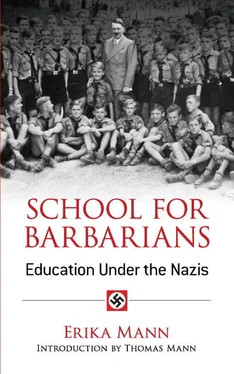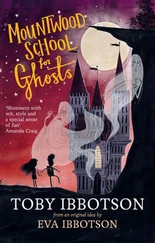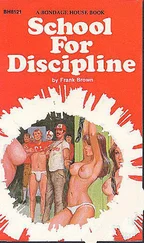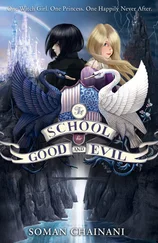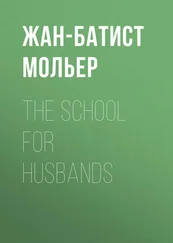She puts the pamphlet down and closes her eyes. “Upon his breast, shot through…” “… the first and last right….”
She looks into his room to see if he is asleep; she watches him lying flat on his back, open-mouthed, with a mesh of fine blond hair fallen across his forehead. A little look of pain runs over his face; he was very stiff from all the marching, and his hand, that she did not know was hurt, is bandaged awkwardly.
His mother looks at him, and knows: “He does not belong to me, but to the State, which will send him into war as soon as he is big enough, which has already taken him from me and made him a stranger, which insists that he march and shoot and remember that blind obedience to it counts far more than love to me.” She stands there, motionless and hoping bitterly that he will move, or call out for her. Perhaps he will murmur something friendly, thinking kindly of her in his dreams. But nothing of the sort happens. He sleeps like a log, as if he had fainted. “They’ve overtired him again,” she thinks, and remembers the family physician’s warning — delicate and considerate — against these forced marches. The boy is none too strong. “They’ll kill him in the end,” she thinks.
The dark room hardly looks like a playroom. The boy is ten. But where are the toys, the Indian feathers, the games and story-books, full of adventure and spellbound princesses? The titles that catch the light from the door are those of the books read during the long “Comrades’ Evenings”:
Aviator’s Nest in the Elder-Bushes, Life Stories of German War Aces, The Infantry Marches On, The Book of German Colonies for the Young, Peter, the Soldier-Boy, and Sister Claire at the Front.
She had to give him these books. She remembers it only too well — and his answer, when she asked whether he enjoyed them. “Of course,” he said, with his angry look, “what else is there to read?”
Well, what else is there? And his playthings: maps, a short dagger, a little dangerous-looking revolver, a few tin soldiers, a bust of the Fiihrer, a gas mask. Gas masks have just been distributed among children, and the boy has been having fun with his. He did frighten her with the ugly thing; she found him, his face covered by the gas mask and its trunk, lying on the floor one day as though he were dead. When she ran up to him, fearful and calling, he jumped up and laughed. “What nerves you have, Mother! What in the world will you do when the serious things begin to happen?” he cried, and, swinging the gas mask, went out.
She stands there, unable to walk away from her little sleeping son. What odd children, she thinks, what curious, strange children! He was five when Hitler came in; now he knows nothing but Hitler’s world that has swallowed us all. Can he like it? Can he enjoy living like this? But none of the children know any other way. They don’t play; they don’t understand what playing is. All their imagination is made use of to one end: war and conquest.
She has to. conceal these thoughts. No one must suspect them. Sink them, send them deep and secret down! But, as a matter of fact, they can be found among the high lords. Baldur von Schirach, for example, writes: “The toy-store keepers have complained to me that these babies have no desire for toys. They are interested exclusively in tents, javelins, compasses, and maps. I cannot help the toy-store keepers, because I too firmly believe with the Pimpfe (Juniors — a new German word) that the time for playing Indians is definitely past. What is a trapper in the American Wild West, compared with our standard-bearers?… Take a look at the ten-year-old Pimpf. See how he marches in front of the band, holding his banner. Compare him with the child of pre-war times. What a tremendous change!”
These proud words written by the Leader of the Reich Youth are the judgment from which there is no appeal. Parents are out-moded authorities.
One boy’s family tried to recall their child. They gave him a birthday party, with ordinary, normal, “civilian” presents: a paintbox, a picture puzzle, a shining new bicycle — and lit twelve candles on his birthday cake. How they looked forward to that party! And it went off like a political conference. Six boys had been invited, and five of them came right on time.
“Who’s missing?” the mother asked.
“Can’t you see?” said the boy, “HE’s missing — Fritzekarl!”
“What a pity!” she answered. That it should be just Fritzekarl! Two years older than her son, he was the leader in the Jungvolk, and his presence at the party was of great importance. If he did not appear, it was a sign of disfavor; the whole thing would be spoiled.
The boys, in their Hitler Youth uniforms stood around the birthday table, not knowing quite what to do with the toys. The bicycle pleased all of them, with its bell (which they took turns ringing) and its rubber tires, which were so hard to get nowadays, and which the father had finally been able to obtain after using all of his contacts in the Party, paying a high cash price, and emphasizing the fact that this was a wheel for a boy, a Jungvolk boy, and not for a girl who would never go to war! Now it stood there, complete with instructions and a copy of the German Cyclist, saying: “Boys on bicycles must try to remember the names of towns, rivers, mountains and lakes as well as the material and type of architecture of bridges, etc. They may be able to make use of this knowledge for the good of the Fatherland.”
The bell rang, and the son dashed to the front door. A sharp voice came through, crying “Heil Hitler!” and the five boys at the table turned on their heels as the answer came in a voice already breaking, “Heil Hitler!” Their superior officer was received with the “German salute,” five hands raised, great composure, solemn faces. Solemnly, Fritzekarl gave the host his birthday present — a framed photograph of the Leader of the Reich Youth, Baldur von Schirach, with a facsimile autograph! The son clicked his heels as he received it.
“I wish to speak to your father,” Fritzekarl said curtly.
The mother answered in her friendly voice, “My husband is not free just now—he’s upstairs working.”
Fritzekarl attempted to keep the note of military command in his shrill young voice. “Just the same, madam, I should prefer to speak to your husband for a moment…. In the interest of your son.”
His manner was correct, in spite of his tone. He bowed slightly to the mother as he finished his masterful little speech.
“Fourteen years old!” she thought, “but the mechanism of power backs him up, and he knows it.”
The son was blushing violently. “For goodness’ sake call him!” he said, stepping toward his mother.
The father came down at once.
“Heil Hitler!” cried Fritzekarl.
“Heil Hitler!” repeated the man. “What can I do for you, Lieutenant?”
“Pardon me,” says Fritzekarl, who doesn’t get the joke, and retains his martial stare, “but your son was absent from our last practice exercises….”
“Yes, I know,” the father interrupts at this point, “he had a cold.”
“It was at your suggestion that he absented himself,” Fritzekarl continues, his voice breaking and going hoarse over the phrase, “You wrote me some sort of excuse, to say that he was staying home at your wish.”
The father puts his weight first on one foot and then on the other. “As a matter of fact, it is my wish that he stay home when he has such a severe cold.”
“Oh, I didn’t have such a bad cold at all,” the son breaks in. He is leaning on the handle-bars of the bicycle that his father had to fight for. “I could have gone, perfectly well.”
Читать дальше
